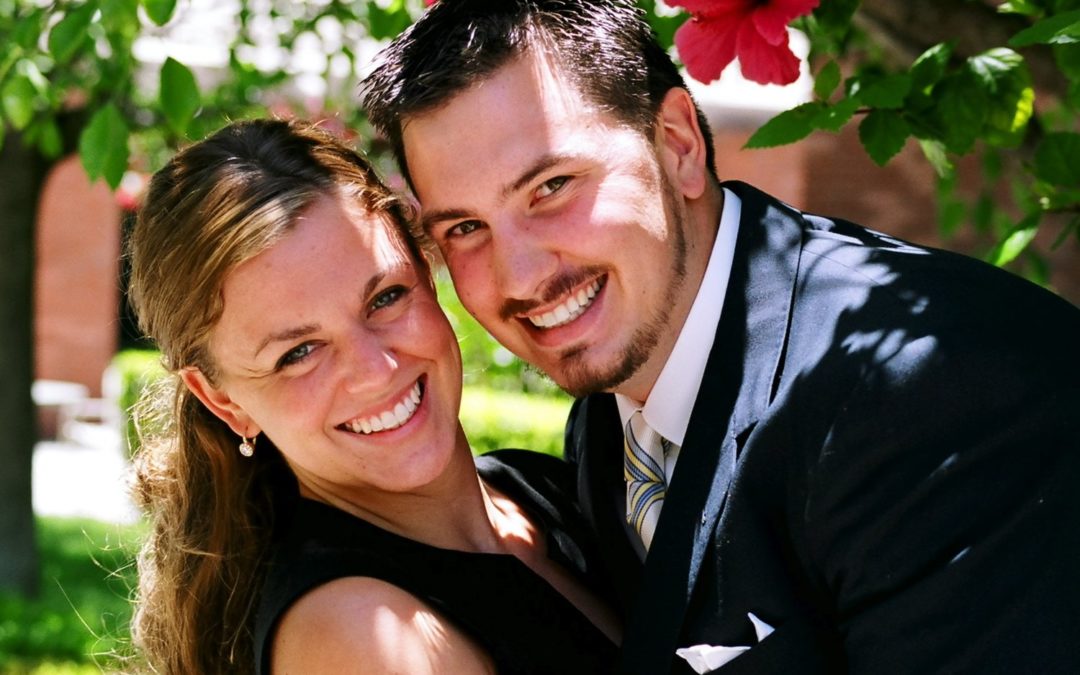Relationship education promotes practices and principles of premarital education, relationship resources, relationship restoration, relationship maintenance, and evidence-based marriage education.
History
The formal organization of relationship education in the United States began in the late 1970s by a diverse group of professionals concerned that the results of conventional methods and means of marriage therapy resulted in no appreciable reduction in the elevated rate of divorce and out-of-wedlock births.
The motivation for relationship education was found in numerous studied observations of the elevated rates of marital and family breakdown, school drop-outs, incarceration, drug addiction, unemployment, suicide, homicide, domestic abuse and other negative social factors when divorce and/or out-of-wedlock pregnancy were noted. In all of the negative categories noted above, statistical over-representation of adults whose childhood did not involve both of their parents was present.
Initial planning for the field of relationship education involved the participation of psychologists, counselors, family life educators, social workers, marriage and family therapists, psychiatrists, clergy from various faith traditions, policy makers, academicians in the fields of social science, attorneys, judges, and lay persons. The goal was to seek the broadest possible dispersal of research and marriage education skills courses which could improve interpersonal relationship functioning, especially with married and pre-marital couples.
Early contributors to the field of relationship education included David and Vera Mace, who founded The Association for Couples in Marriage Enrichment. The Maces conducted their first couples retreat in 1962. Bernard and Louise Guerney launched the “Institute for the Development of Emotional and Life Skills,” later known as “Relationship Enhancement,” in 1972.
In 1975, Lori Heyman Gordon developed a semester-long, 120-hour relationship education course for American University graduate students, which she called “PAIRS,” an acronym for the “Practical Application of Intimate Relationship Skills.” Virginia Satir, considered the “Mother of Family Therapy,” began training therapists as relationship educators in 1984.
Two large scientific studies published in 2011 provided evidence that marriage and relationship education helps reduce divorce among military and distressed couples. Another showed evidence of significant gains for singles, couples and as a potential strategy to reduce rates of teen pregnancy. Other studies, notably the Building Strong Families Program, have shown that relationship education does not “improve relationship quality/satisfaction” for low-income, unwed couples, while another provided evidence of statistically significant benefits for low-income married couples.

Goals for couples
Goals of relationship education include helping couples learn to:
- Confide in one another regularly with emotional openness and empathic listening.
- Complain to one another regularly (without attacking) including requests for change. Can listen to complaints without defensiveness.
- Resolve differences and conflicts by seeking to learn rather than to prevail. Use fair fighting that involves confiding, empathic listening, complaining with requests for change, and contracting, effective win-win solutions, all without manipulation or dirty fighting.
- Agree upon areas of autonomy, areas of consultation, and areas of mutually shared ownership and decision-making.
- Clarify hidden assumptions and unspoken expectations to minimize misperception and misunderstanding.
- Help one another heal pains and disappointments, resolve emotional allergies, and clarify hidden assumptions. Conjointly heal and resolve emotional allergy infinity loops.
- Meet basic needs for sensuality, appropriate sexuality, physical closeness, bonding, and intellectual and emotional sharing with one another.
- Follow clear, equal, negotiated boundaries regarding what is private and not shared with others outside the relationship.
- Initiate change when the status quo (division of roles, responsibilities, and privileges) is not satisfactory. Follow through on negotiated changes.
Seven principles of relationship education
- It’s Your Ship, You’re the Captain: Relationship education is about helping people find strategies and solutions that fit for their unique circumstances, values and relationship goals. That includes respecting their own personal responsibility for their success and the decisions they make for their lives. Evidence-based skills training provides techniques that are easy to understand and use to surface greater awareness of what lies beneath the tip of the iceberg, navigate typical relationship challenges, and overcome differences that are a natural part of any close relationship.
- One Mouth, Two Ears: Relationship education provides safe, time-limited structures for conversations that matter, which are often much more about listening than talking. Learning to actively listen with empathy and respect to another person’s perspective and experience –without judgment, defensiveness, blame, or an effort to quickly try to “fix” the issue or the person — makes it safer for intimates to develop greater awareness of themselves and each other.
- Riding the Waves: Relationship education teaches practical, usable skills for better understanding and safely expressing the full range of emotions, including anger, sadness and fear. Upsetting feelings held in eventually either implode or explode. Confiding painful feelings to a significant other leaves more room to experience feelings of love, pleasure and happiness. Just as the most powerful waves lose their energy when they break against the shore, the same is generally true of emotions.
- It’s Rarely the Problem that’s the Problem: Relationship education enables distressed couples — with good will towards each other, openness to learning, and a desire for the relationship to succeed — to deal with differences and problems in ways that often lead to greater closeness, understanding, acceptance and commitment. The issues that surface are typically symptoms of communication breakdowns, hidden assumptions and expectations, behaviors that come from holding in upsetting feelings, or lack of skills for constructive conflict resolution.
- Love is a Feeling: Relationship education helps people develop their emotional intelligence, including understanding that feelings of love come from the anticipation of pleasure in our interactions with others. If instead of anticipating pleasure, we expect pain, feelings of love are unlikely to survive, let alone thrive. What’s a pleasure changes during different stages and passages of life. Sustaining feelings of love requires learning what it takes in today’s circumstances to stay a pleasure in each other’s lives. And doing it.
- Marriage is a Contract: Relationship education recognizes that although nearly all traditional marriage vows include the promise to “love ‘till death do us part,” the marriage contract itself cannot be dependent on “feelings” of love, which naturally wax and wane. That doesn’t mean commitment or obligations wax and wane. Emotions are affected by many factors, often unrelated to issues inside our closest relationships. Marriage is the glue that’s meant to hold couples and families together during periods of growth, change and challenge that are natural part of life.
- Relationships are Work: Relationship education is built on the understanding that what happens in our closest relationships impacts quality of life, fulfillment, happiness, and the ability to pursue cherished dreams and aspirations. Relationships take regular attention. Without intentionally nurturing relationships, it’s easy to become strangers, for relationships to wither and become vulnerable. Beyond staying a pleasure in each other’s lives, the work of an intimate relationship is to consistently meet each other’s needs for bonding (emotional and physical closeness). Relationship education provides a road map and usable skills for sustaining healthy relationships that are an ongoing source of love, pleasure, happiness, and fulfillment for both partners.
[wiki] https://en.wikipedia.org/wiki/Relationship_education
Whether you only just became exclusive or have been with your significant other for years, chances are your relationship could benefit from fresh assessment. Of course, every couple is different–but we asked relationship experts to reveal the top goals they think most duos could tap to make their connections stronger.

Ask more questions
This year, stop assuming you know everything about your significant other, says Holly Richmond, PhD, a Los Angeles-based sex and relationship therapist: “Especially with partners we’ve been with for a while, we get to a place in our heads where we think we know all the answers. But they might actually surprise us. Always give your partner the chance to surprise you by asking them more questions.”
Put a hard stop to your workday
You put in 10 hours at the office, head home to scarf down dinner, then hop back online to finish work until you crash. If that routine sounds familiar, it’s likely your sex life is taking a hit, says Angela Skurtu, couples therapist and co-creator of the About Sex Podcast.
Try something new in the bedroom
“Whether it involves kink, swinging, or shared fantasy play, make a commitment to expand your sexual repertoire,” says Lawrence Siegel, a Florida-based clinical sexologist. If you’re worried your significant other will be offended by the suggestion, explain that your desire to experiment is simply a testament to the quality of your relationship.
Fight fair
Relationships aren’t all rainbows and unicorns, and arguments are inevitable. To make your disagreements more constructive, resolve to fight fair this year, suggests Alexandra Katehakis, PhD, clinical director of the Center for Healthy Sex in Los Angeles.
“Below-the-belt fighting consists of name-calling, interrupting, bringing up the past, distracting from the issue, and shaming or blaming your partner—all of which tear at the foundation of your relationship,” she explains. Instead, fight fairly by calmly stating your concern, talking about your feelings, and sharing the impact the issue is having on you.
Get grateful
Express more gratitude for your significant other: “Wake up and tell your partner something about why you appreciate being next to them every morning,” suggests Siegel. “Imagine how wonderful it would feel if you started each day hearing that you are truly appreciated by the person you care about most.”

Schedule extra-special date nights
Instead of just doing a standard dinner date, designate one night every month (or more, if your schedules allow for it) that one partner plans something special for the two of you to do together, suggests Siegel.
“What’s planned should be a surprise,” he says, “and something that is intended to turn you both on.” It could be anything from setting up a bubble bath or booking massages to a night out role-playing as if you’ve never met before (then going home together, duh).
“Whatever the date ends up being,” says Siegel, “mark it on your calendars and assign it the same level of importance—if not more—as you would a business commitment.”


Recent Comments